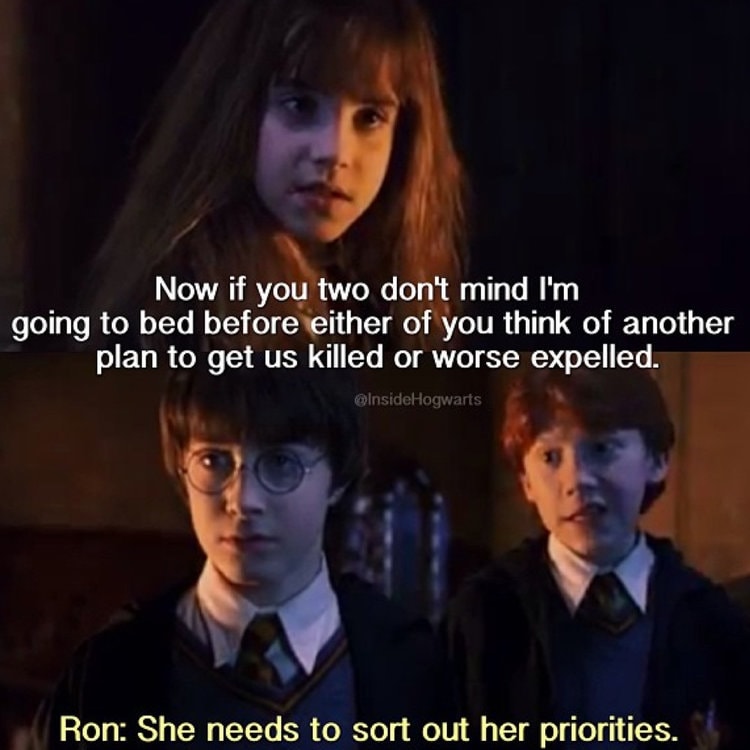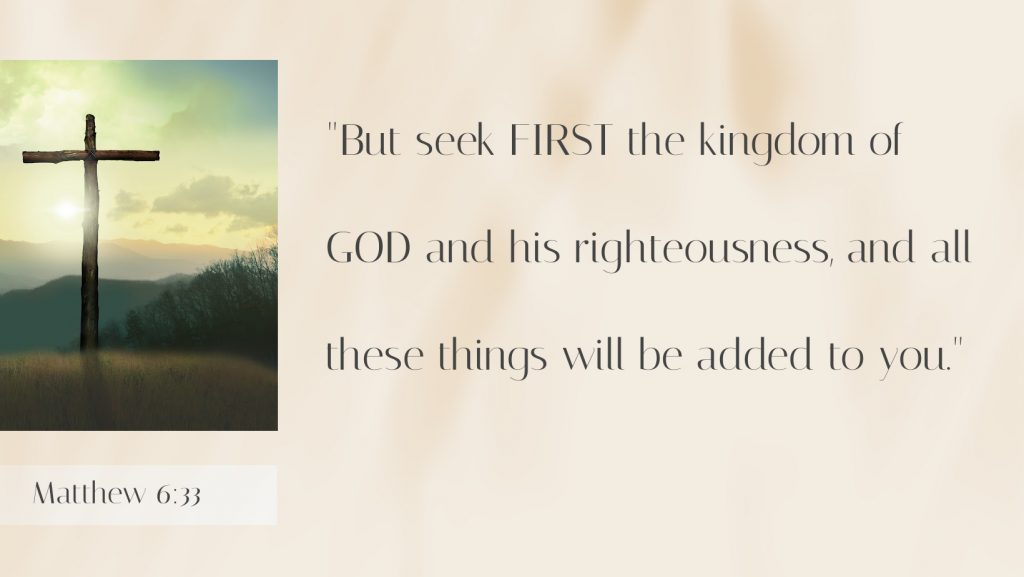In one of my favorite interactions from all of literature, Hermione Granger—Harry Potter’s know-it-all sidekick (and my fictional kindred spirit)— quips to her troublemaking pals Harry and Ron, “I hope you’re pleased with yourselves. We cold all have been killed —or worse, expelled.” And in the movie remake (which is far inferior to the novel in all but this one line) Ron drolly replies, “She needs to sort out her priorities.”

While the banter is humorous, it taps into something most of us struggle with: a failure to properly prioritize. We elevate the inconsequential to the detriment of what truly matters, giving VIP status to secondary issues while relegating all that is truly important to the sidelines. Like Hermione, who cared more about her school status than her own life, our sense of what matters has been warped, and this imbalance is affecting our decision making, our emotional state, and our society.
Order matters. We know this instinctively: we must put on our socks before pulling on our shoes; we top off our beverages after having first filled our glasses with ice; as babies we learn to roll, then crawl, then walk and eventually run. We always read the first book in a series before diving into the next (or we SHOULD because, as one of my reading gurus, Meredith, often reminds us, “We are not animals!).
We instinctively see why order matters in pragmatic matters, where going out of order is impractical and in some instances even absurd. It’s harder to recognize the importance of order when we get into the ideological realm, but it’s there, too: in the values we hold most closely, the issues we choose to give our attention to, the weight we place on family vs recreation vs career, and in how we live out our spiritual lives.
I recently heard a sermon in which the pastor emphasized the importance of looking UP to God (having a vertical perspective) before looking out towards the world (a horizontal perspective). He called this being an “up-looker” rather than an “out-looker,” remembering to look up to God and letting what we see in Him define our understanding of earthly matters. . . not the other way around. It’s not that we aren’t to care about horizontal issues; we are, after all, told to love our neighbors, to care for the world, to bless those around us. But these are meant to be subsequent to our love for the Lord. We are to seek after Him first.

We see prioritization of vertical-before-horizontal love throughout Scripture. In that same sermon, the pastor pointed to vertical language in the Ten Commandments, where the first four commands all remind us to look to God, with the following six horizontal commands informed by our God-then-people prioritization. We become what we are looking at, so as we look towards God (as the first four commands would have us do), our hearts are filled with God-love that spills out towards others. When we are serving our Heavenly Father and being formed in His likeness, we can’t help but see and love our neighbors just as He sees and loves them—as His image bearers and worthy of our respect and kindness.
This vertical language is also seen in the Lord’s Prayer, which begins with praising God and seeking His kingdom before turning towards matters like daily bread and forgiveness of others. With His famous prayer, Jesus reminded His followers and us that a vertical perspective fuels and feeds our horizontal life; if we switch the order, looking out around us before looking up to God, we will quickly run out of steam.
Horizontal perspective simply can’t come first, because it will always let us down. Earthly friendship, romance, and familial connection are wonderful, but all pale in comparison to the Lord’s unconditional and unlimited love. To borrow that oft-cited metaphor, we all have a God-shaped hole in our hearts; that hole is gaping and vast, and nothing but the infinite love of our Lord can fill it.
With so much sadness and strife dominating the news these days, it’s hard not to feel overwhelmed. On alternating days we may wish to hide in our closets, avoiding the pain beyond; or we may choose to become difference-makers, throwing our attentions and resources to the causes screaming to be addressed. There is a time and place for all of this; we DO need to guard our hearts at times, and we SHOULD give our care to earthly matters. But these must be subsequent to loving and serving God, saturating our hearts in His Word and in prayer so that the overflow of our love spills out across all things horizontal.

To reiterate: this is not a call to stop caring about lesser things. It is simply a reminder that those things are lesser. And by “those things,” I mean EVERYTHING that isn’t the Lord: our families, our health, our politics, our finances, and even matters of social justice. As C.S. Lewis so fittingly reminds us, “Put first things first and second things are thrown in. Put second things first and you lose both first and second things.” Let’s get that order right. We won’t be disappointed.